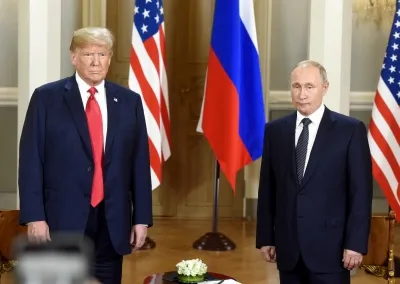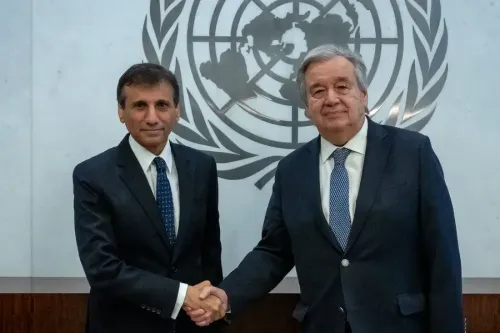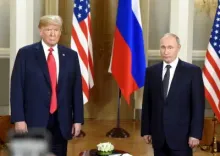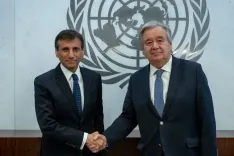Is 2025 a ‘bleak year’ for Pakistani media with 137 incidents targeting journalists?
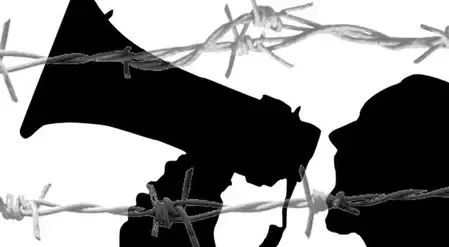
Synopsis
Key Takeaways
- 137 incidents of journalist targeting documented in 2025.
- Physical violence, detentions, and harassment are prevalent.
- Urgent need for stronger legal protections for media professionals.
- International organizations are calling for immediate action.
- Ongoing censorship and internet shutdowns threaten free expression.
Islamabad, Nov 2 (NationPress) The Pakistan Press Freedom (PPF) has recorded a minimum of 137 incidents aimed at journalists and media personnel between January and October 2025, raising alarms over a “bleak” outlook for media safety and free expression in Pakistan, as reported by local media.
In a report released to commemorate the International Day to End Impunity for Crimes Against Journalists, the PPF indicated that the threats faced included physical assaults, detentions, criminal complaints, censorship directives, and internet shutdowns, all of which occur despite constitutional assurances of free expression, according to Pakistan's prominent daily, Dawn.
The PPF urged authorities to go “beyond lip service” and implement both domestic and international commitments to safeguard press freedom, which includes the effective application of existing safety laws and procedures. The report detailed 35 incidents of physical violence and manhandling, while two journalists sustained injuries while on duty, five were detained, two kidnapped, and four attacks targeted properties, including raids.
According to the findings, eight journalists were arrested, and 30 FIRs were filed, 22 of which were registered under the Pakistan Electronic Crimes Act (Peca), incorporating the recent Section 26-A on “fake information” — alongside 23 actions initiated by the FIA and the National Cyber Crime Investigation Agency.
Media professionals in Pakistan also encountered intimidation that included seven threats, three threats of legal action, and seven harassment cases, with some instances involving family members or political rhetoric, while two journalists found themselves on a no-fly list.
Furthermore, censorship and restrictions led to six suspensions of mobile or internet services, a Pemra order, a court ruling blocking 27 YouTube channels, and limitations on reporting outside Adiala Jail.
The PPF stated that the press in Pakistan is subject to a hostile environment fueled by political leaders' rhetoric and governmental actions, in addition to “brazen” property attacks and oppressive legislation. The report highlighted the ongoing physical violence, including assaults, detentions, and abductions — amidst a lack of preventive, protective, and prosecutorial measures. It also documented the challenges journalists face while covering climate disasters.
Meanwhile, the International Federation of Journalists (IFJ) has expressed alarm over the targeted killings of journalists, the misuse of the Prevention of Electronic Crimes Act (Peca) against media professionals, unacknowledged censorship, harassment from both state and non-state actors, forced job losses, and unpaid salaries in Pakistan, as reported by local media.
This concern was voiced when a delegation from the Pakistan Federal Union of Journalists (PFUJ) engaged with IFJ President Dominique Pradalie and Secretary General Anthony Bellanger at the Syndicat National des Journalistes (SNJ) headquarters in Paris, according to a statement. The meeting aimed to address the escalating crisis confronting journalists in Pakistan.
The IFJ representatives urged Pakistan’s leadership and senior judicial figures to take immediate action regarding the issues faced by journalists and cautioned that continued inaction by authorities could prompt a request for intervention from the United Nations, as reported by Dawn.
During the discussion, the PFUJ team, including Secretary General Shakeel Ahmed, President of Rawalpindi-Islamabad Union of Journalists Tariq Usmani, and Head of the Foreign Committee Waseem Shahzad Qadri, briefed the IFJ leaders on the dire circumstances faced by journalists in Pakistan.

